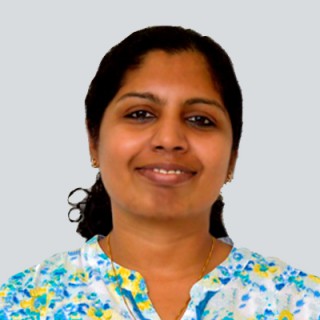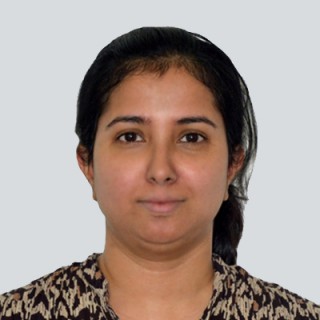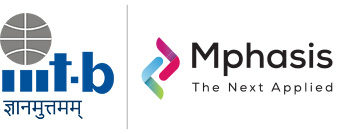
Day 1: 12 Feb 2020
Brave Conversations was created to bring thinking around Web Science and the Social Machine to mainstream conversations that occur in everyday life. Its objective is to demystify the world of emerging technologies and enable an exploration

Day 2: 13 Feb 2020
Featuring a series of talks by several eminent researchers, practitioners and policy-makers on various topics pertaining to digital societies, including three keynote speeches: Prof. Dame Wendy Hall, Prof. Manish Gupta, etc.

Day 3: 14 Feb 2020
Datathon is to build awareness and inspire a call for action towards the safety of women in India and the mitigation of gender-based crime prevalent in the country.

Agenda
| 0830-0900 | Registration |
| 0900-0915 | Inauguration and Address by Dean (Academics) Prof. R Chandrashekar |
| 0915-1015 | Keynote – 1: Speaker: Dame Wendy Hall, Web Science Institute |
| 1015-1045 | Invited Talk – 1: Speaker: Prof. Bidisha Chaudhuri, IIIT Bangalore |
| 1045- 1115 | Invited Talk – 2: Speaker: Prof. Jaya Sreevalsan Nair, IIIT Bangalore |
| 1115-1130 | Tea Break |
| 1130-1200 | Invited Talk – 3: Speaker: Jai Ganesh, Mphasis Inc. |
| 1200-1230 | Invited Talk – 4: Speaker: Sabu Padamdas, University of Southampton |
| 1230-1300 | Invited Talk – 5: Speaker: Nandan Sudarsanam, IIT Madras |
| 1300-1400 | Lunch Break |
| 1400-1500 | Keynote – 2: Speaker: Noshir Contractor, Northwestern University |
| 1500-1515 | Tea Break |
| 1515-1545 | Invited Talk – 6: Speaker: Pauline Leonard, Web Science Institute |
| 1545-1615 | Invited Talk – 7: Speaker: Srinath Srinivasa, IIIT Bangalore |
| 1615-1645 | Invited Talk – 8: Speaker: Pathik Pathak, University of Southampton |
| 1645-1700 | Report on Brave Conversations: Speaker: Anni Rowland-Campbell, University of Southampton |
| 1700-1730 | High Tea and Closing |
Speakers

Dame Wendy Hall
Dame Wendy Hall, DBE, FRS, FREng is Regius Professor of Computer Science, Pro Vice-Chancellor (International Engagement), and is the Executive Director of the Web Science Institute at the University of Southampton. Dame Wendy was co-Chair of the UK government’s AI Review, which was published in October 2017, and has recently been announced by the UK government as the first Skills Champion for AI in the UK.
With Sir Tim Berners-Lee and Sir Nigel Shadbolt she co-founded the Web Science Research Initiative in 2006 and is the Managing Director of the Web Science Trust, which has a global mission to support the development of research, education and thought leadership in Web Science.
She became a Dame Commander of the British Empire in the 2009 UK New Year’s Honours list, and is a Fellow of the Royal Society.
She has previously been President of the ACM, Senior Vice President of the Royal Academy of Engineering, a member of the UK Prime Minister’s Council for Science and Technology, was a founding member of the European Research Council and Chair of the European Commission’s ISTAG 2010-2012, was a member of the Global Commission on Internet Governance, and until June 2018, was a member of the World Economic Forum’s Global Futures Council on the Digital Economy.

Noshir Contractor
Noshir Contractor is the Jane S. & William J. White Professor of Behavioral Sciences in the McCormick School of Engineering & Applied Science, the School of Communication and the Kellogg School of Management and Director of the Science of Networks in Communities (SONIC) Research Group at Northwestern University.
Professor Contractor has been at the forefront of three emerging interdisciplines: network science, computational social science and web science. He is investigating how social and knowledge networks form – and perform – in contexts including business, scientific communities, healthcare and space travel. His research has been funded continuously for 25 years by the U.S. National Science Foundation with additional funding from the U.S. National Institutes of Health, NASA, DARPA, Army Research Laboratory and the Bill & Melinda Gates Foundation.
His book Theories of Communication Networks (co-authored with Peter Monge) received the 2003 Book of the Year award from the Organizational Communication Division of the National Communication Association. He is a Fellow of the International Communication Association (ICA), the American Association for the Advancement of Science (AAAS), and the Association for Computing Machinery (ACM). He also received the Distinguished Scholar Award from the National Communication Association and the Lifetime Service Award from the Organizational Communication & Information Systems Division of the Academy of Management. In 2018 he received the Distinguished Alumnus Award from the Indian Institute of Technology, Madras where he received a Bachelor’s in Electrical Engineering. He received his Ph.D. from the Annenberg School of Communication at the University of Southern California.

Jai Ganesh
Dr. Jai Ganesh is the Senior Vice President and Head of Mphasis NEXTLabs. He is a Product and Service Innovation leader with extensive experience in inventing, conceptualizing, building and commercializing successful technology product and service innovations. Under his leadership, NEXTLabs has created several global award-winning solutions, products and service offerings. Recent awards won include AIconics 2017 for ‘Best application of AI in Financial Services’ and Business Intelligence Group’s ‘2018 Stratus Awards for Cloud Computing’. Jai consults and co-creates with leading global corporations to formulate their digital transformation strategy and build advanced AI driven solutions. He focuses on applied research and innovation in areas such as Data Science, Social Network Analysis, Machine Learning, Deep Learning, Artificial Intelligence, Natural Language Processing, Cloud Computing and Automation. Jai is a prolific inventor with several granted patents as well as publications in leading peer reviewed journals and conferences. He is a PhD from Indian Institute of Management Bangalore (IIMB) and also has an MBA. Jai is a recipient of the Chevening Rolls-Royce Science and Innovation Fellowship at the University of Oxford.

Pauline Leonard
Professor Pauline Leonard is Professor of Sociology and Director of the Web Science Institute at the University of Southampton. She is a Fellow of the Academy of Social and of the Royal Society of Arts.
Pauline’s principle research interests are in diversity and work and she has published widely on gender and organisations, race and professional migration, age, employability and careers.

Sabu Padmadas
Professor Sabu S. Padmadas is Associate Dean (International) of the Faculty of Social Sciences, Professor of Demography and Global Health, and Founding Co-Director of the Centre for Global Health, Population, Poverty and Policy (GHP3) at the University of Southampton.
Padmadas obtained a PhD degree in Demography in 2000 from the Faculty of Spatial Sciences of the University of Groningen in The Netherlands, an MSc degree in Demography in 1995 and a BSc degree in Mathematics with Statistics and Physics in 1992 from the University of Kerala in India, and a Postgraduate Certificate in Academic Practice in 2006 from the University of Southampton. Padmadas joined the University of Southampton as a Lecturer in Demography in 2002 after completing a two-year term as post-doctoral fellow of the Dutch Royal Academy of Sciences at the University of Groningen. He is currently a Fellow of the UK Higher Education Academy, and an honorary Senior Research Fellow at the China Population & Development Research Centre, a think-tank attached to the National Health Commission of the People’s Republic of China.
His research interests focus broadly on population dynamics and the application of demographic analysis and statistical modelling of global health and wellbeing outcomes in low-middle income and transition economies. He has international expertise in programme impact evaluation and quantitative demography using census and survey data including calendar data, life course and birth history analyses, and population projections. The specific areas of his research cover a broad spectrum of challenging population health topics including: family planning, reproductive and child health, inequalities in health and healthcare outcomes, nutrition, life course epidemiology, population health policies and social determinants of disease outcomes. The journey to his multidisciplinary research career began with the publication of his doctoral thesis entitled ‘Intergenerational Transmission of Health: Reproductive Health of Mother and Child Survival in Kerala, South India’ – and inspired by his mentors: Professor Frans Willekens, Professor Inge Hutter and Professor PS Nair.
A significant achievement of Padmadas’ academic career is the research spanning over a decade (since 2003) evaluating three cycles of the United Nations Reproductive Health and Family Planning programme in China, which generated high impact and policy response at the national level. This was a high profile collaborative programme with the then National Population and Family Planning Commission and the Ministry of Health of the People’s Republic of China, and the United Nations Population Fund (UNFPA). Padmadas has an excellent track record of successful research grants funded by the UK and International Research Councils, British Academy, UK Department for International Development, UK Royal Society, International Development Research Centre (Canada), Ministry of Foreign Affairs and Norway Agency for Development Cooperation (NORAD), United Nations and the World Health Organisation. He has published over 70 peer-reviewed articles in international journals, and has served as referee for research councils and for over 30 leading international journals. Over the years, his research has attracted attention from governmental and international think-tank agencies, policy decision-makers and other international media including BBC World Services and New York Times.

Nandan Sudarsanam
Dr. Nandan Sudarsanam has domain expertise in the areas of finance, demographic and experimental data (across different engineering disciplines). The primary area of research for Nandan is in experimentation and machine learning, with a specific focus on algorithmic approaches in these fields. During his PhD from MIT, he created new algorithms for experimentation, as well as the creation of meta-models from data which could be used to simulate the performance of various experimental algorithms. He has applied his techniques to various industries including commercial banking (Bank of America – Boston), automotive (Ford Motor Company – Detroit), manufacturing (Brakes India – Chennai), and over the last five years in high-frequency algorithmic trading (with Rackson Asset Management – New York). During his last stint as the Head of research at Rackson Asset Management, he has worked with large data sets and deployed data analytic techniques which lead to highly profitable trading strategies

Srinath Srinivasa
Srinath Srinivasa heads the Web Science lab and is the Dean (R&D) at IIIT Bangalore, India. Srinath holds a Ph.D (magna cum laude) from the Berlin Brandenburg Graduate School for Distributed Information Systems (GkVI) Germany, an M.S. (by Research) from IIT-Madras and B.E. in Computer Science and Engineering from The National Institute of Engineering (NIE) Mysore. He works in the area of Web Science — that models of the impact of the web on humanity. Technology for educational outreach and social empowerment has been a primary motivation driving his research. He has participated in several initiatives for technology enhanced education including the VTU Edusat program, The National Programme for Technology Enhanced Learning (NPTEL) and an educational outreach program in collaboration with Upgrad. He is a member of various technical and organizational committees for international conferences like International Conference on Weblogs and Social Media (ICWSM), ACM Hypertext, COMAD/CoDS, ODBASE, etc. He is also a life member of the Computer Society of India (CSI). As part of academic community outreach, Srinath has served on the Board of Studies of Goa University and as a member of the Academic Council of the National Institute of Engineering, Mysore. He has served as a technical reviewer for various journals like the VLDB journal, IEEE Transactions on Knowledge and Data Engineering, and IEEE Transactions on Cloud Computing. He is also the recipient of various national and international grants for his research activities.

Pathik Pathak
Dr. Pathik Pathak is Faculty Director of Social Entrepreneurship and Founding Director of the Social Impact Lab
He is passionate about innovation in higher education, and has pioneered the use of challenge-based education.
As Founding Director of the multi award-winning Social Impact Lab he leads the University’s international work on social entrepreneurship. This includes leading a team which delivers a range of activities for our students, including the Social Enterprise module, Spark India, the Social Impact Leaders Speaker Series, our Placements scheme, our in-house Ventures and mentoring start-up social entrepreneurs.
As a result of his work in social entrepreneurship education, he has been made a Fellow of the Royal Society of Arts and was awarded the Mahatma Gandhi Pravasi Samann in 2015 for outstanding contributions to education.

Jaya Sreevalsan Nair
Professor Nair obtained her Ph.D. in Computer Science from University of California, Davis; after a B.Tech in Aerospace Engineering from IIT-Madras and an M.S. in Computational Engineering from Mississippi State University. Prior to joining IIITB, she worked as a scientific programmer at Enthought Inc. Austin and as a research associate at Texas Advanced Computing Center, the University of Texas at Austin. Her areas of interest are visualization, scientific computing, computer graphics, and computational geometry.
She leads the Graphics-Visualization-Computing Lab at IIITB. She is also the core team member of the E-Health Research Center at IIITB.

Bidisha Chaudhuri
Bidisha Chaudhuri is an Assistant Professor in the domain of IT and Society. She received her PhD from South Asia Institute at Heidelberg University, Germany. She completed an M.A in Sociology from Delhi School of Economics, University of Delhi and a Joint European Masters in Global Studies from University of Leipzig (Germany) and Vienna University (Austria). She has worked in research institutions and developmental organizations in India and abroad. Prior to joining IIITB, she worked as a Postdoctoral Research Associate at ISEC, Bangalore. Her current research projects include, information systems for sustainable development, conversational agents in everyday practices, politics of algorithms, gender and ICTs, political economy of digital identity and sociology of work and automation.
17-18 March 2023 at IIIT Bangalore
Get in Touch
Prof Srinath Srinivasa
sri@iiitb.ac.in
Phone
+91 80 4140 7777
+91 80 2852 7627
IIITB
26/C, Hosur Rd, Electronics City Phase 1, Electronic City, Bengaluru, Karnataka 560100
Fax
+91 80 2852 7636
International Institute of Information Technology Bangalore – 2020

